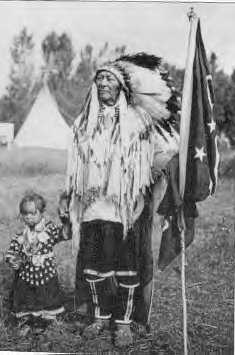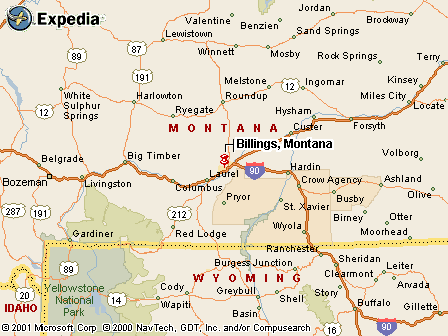|
|
Canku Ota |
|
|
(Many Paths) |
||
|
An Online Newsletter Celebrating Native America |
||
|
April 3, 2004 - Issue 110 |
||
|
|
||
|
Plenty Coups Tales Aid Culture Lessons |
||
|
by Tom Howard Billings
Gazette
|
||
|
credits: photo:
Crow Chief Plenty Coups
|
|
That's a story that Robert Yellowtail Sr., a Crow who argued Plenty Coups' case, liked to share with his daughter, Winona Plenty Hoops. Yellowtail, himself a legend among the Crow, learned English as a young man. He graduated from an Indian boarding school in California and was just completing law school when he felt the need to return to his family on the Crow Reservation. At Plenty Coups' request, Yellowtail accompanied the Crow chief to Washington, D.C., in 1917, where he eloquently defended the tribe's treaty rights against Sen. Tom Walsh, D-Mont., who wanted to open the reservation to white settlers. Plenty Coups and his companions often prayed over sacred medicine bundles during the long trip to Washington, D.C., Plenty Hoops said Thursday at Montana State University-Billings. Plenty Hoops and four other tribal elders shared stories about Plenty Coups and other aspects of Crow culture during a two-day symposium that concluded Friday. Much of the elders' discussion dealt with sacred medicine bundles that have played an integral part of Crow culture for generations. Plenty Hoops, a member of the Crow tribe's sacred Tobacco Society, described a medicine bundle used for keeping sacred seeds. "The First Maker gave seeds to a boy who was fasting, and we've had them from then on," Plenty Hoops said. "The sacred seeds have shown us the four seasons," Plenty Hoops said, explaining how the seeds sprouted during a spring planting that she made several years ago. "It made me feel so good because they have so much power. We are very fortunate that the First Maker gave us the seeds. The Crow people are the chosen people." Joe Medicine Crow said he may have been one of the last people to see Plenty Coups alive shortly before the legendary chief died in 1932. "He always liked to parade. He even paraded with his friend Buffalo Bill Cody," said Medicine Crow, who was instrumental in the formation of the Plenty Coups State Park, which includes the Plenty Coups museum. The symposium, held at MSU-Billings and Plenty Coups State Park, helped raise awareness of the federal Native American Graves Protection and Repatriation Act. NAGPRA has been used to reclaim Indian artifacts from museums, to bring home human remains and sacred objects purchased or stolen from American Indians, or given away in earlier generations. The symposium was presented by the Friends of Chief Plenty Coups Advisory Council and the Montana Department of Fish, Wildlife and Parks, through a grant from the National Park Service. Plenty Coups State Park, which is managed by Fish Wildlife and Parks, has developed procedures and guidelines for handling sacred objects under NAGPRA. Tribal elders are routinely consulted as part of the process for how artifacts are handled, stored, preserved and displayed. Doug Habermann, regional parks director for Fish Wildlife and Parks, said Plenty Coups gave and received many gifts over his lifetime, and the museum has several hundred items that belonged to him, as well as a similar number of documents from his life. Barney Old Coyote Sr. said NAGPRA has helped reunite Indians with artifacts that had been sold or donated to museums or private individuals over the years. Old Coyote said the care of Crow artifacts is especially important today because Crow society has changed dramatically since the days of Plenty Coups. "When Plenty Coups was alive, people understood the Crow way and they were willing to accept the Crow way," Old Coyote said. "When the white people came, they said your ways are wrong, and many of the medicine bundles were given away or burned." Today, "Our belief systems are as varied as the rest of the world," Old Coyote said. |
|
|
www.expedia.com |
|
|
||
|
|
||
| Canku Ota is a free Newsletter celebrating Native America, its traditions and accomplishments . We do not provide subscriber or visitor names to anyone. Some articles presented in Canku Ota may contain copyright material. We have received appropriate permissions for republishing any articles. Material appearing here is distributed without profit or monetary gain to those who have expressed an interest. This is in accordance with Title 17 U.S.C. Section 107. | ||
|
Canku Ota is a copyright © 2000, 2001, 2002, 2003, 2004 of Vicki Lockard and Paul Barry. |
||
 |
 |
|
|
The "Canku Ota - A Newsletter Celebrating Native America" web site and its design is the |
||
|
Copyright © 1999, 2000, 2001, 2002, 2003, 2004 of Paul C. Barry. |
||
|
All Rights Reserved. |
||
 When
Crow Chief Plenty Coups learned that he had won a land dispute
with the federal government, he stood up in a Washington, D.C.,
courtroom, grabbed his coup stick and proudly sang a victory song.
When
Crow Chief Plenty Coups learned that he had won a land dispute
with the federal government, he stood up in a Washington, D.C.,
courtroom, grabbed his coup stick and proudly sang a victory song.
